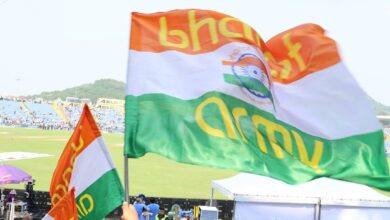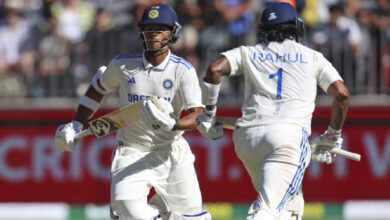How a trip to Goa for a competition in the 90s resuscitated Levon Aronian’s chess career

When Levon Aronian allows his memory to waft back three decades — back to the early 1990s when he was a ‘skinny boy’ who would always be nibbling on chocolates during chess tournaments — he prefers to look at the start of his chess career and interpret himself as getting lucky.The time Aronian started playing chess was a tumultuous, almost anarchic, time to be in Armenia. The Soviet Union was rapidly crumbling. A bloody conflict raged between Armenia and Azerbaijan over the Nagorno-Karabakh region. A devastating earthquake in 1988 had unleashed the fury of nature on the Armenians.To complicate matters for the Aronian family, independence from the Soviet Union meant that young Levon’s parents had to quit their highly-respected jobs at a time when electricity and water shortages were commonplace, and things in the country were so dire that cars in his city were being pulled horse carts as gas became too expensive.
“I started chess pretty late, just one month before I turned nine. And then, the Soviet Union collapsed. Right at that moment! When the Soviet Union collapsed, my father was a physic and my mother was a geolog. And there really was no use for people of that profession anymore. It was all about survival and food.
My father’s laboratory, where he was growing crystals to make lasers, became a place where they started making popcorn. At that time, food was more important. I was extremely skinny, because we were quite poor when I was growing up. We couldn’t afford to buy any food with protein in it. We didn’t have any water or electricity at home. In a country like Armenia where in winter it gets to minus 20, it was a rough time,” Aronian says, setting the scene.
Levon Aronian with Magnus Carlsen.
Despite all the hardships, Aronian thinks of himself as lucky because the break from the Soviet Union meant that within six months of playing chess, he found himself the national champion in the U10 category, which also earned him a ticket to travel to Germany to play in the U10 World Championship.
“If the Soviet Union had not separated, I would have had to play in the Soviet championship, where it would be totally impossible for me to win because I had barely mastered the basics of chess while all the Soviet kids start the age of five and the age of 10, have the strength of a first category player,” Aronian tells The Indian Express from Dubai where he is competing in the Triveni Continental Kings colours in the Global Chess League.
That heady win in the Armenian championship early on in a way charted his entire life for him. He recollects how his parents made him give away all his toys to another child so he could focus only on the 64 squares. It was a time which demanded sacrifices from everyone.
“It was time for me just to start playing chess and taking that seriously because not just the Soviet Union, Armenia was also collapsing. We had no money. So my mother went and knocked on the doors of anybody rich and asked them to help me, to find me sponsors. She’d spend six or seven hours a day doing this. She was an engineer, a very respected person. And she resorted to begging for people to help me. I also quit school soon enough,” he recollects.
Aronian has a unique perspective when looking at a dire situation and seeing only the positives.
“What happened was that some people helped me back in those times because they felt that this is the future, maybe this kid is talented,” he says with a smile.
As it turned out, the kid was a lot more than merely talented, becoming the World U12 champion in 1994, a grandmaster in 2000 and finishing second in the 2001 World Junior Chess Championship.
Despite all the early success, machinations within the Armenian chess federation frustrated him to such an extent that the year he became an Armenian national champion in 2002, he almost walked away from the sport to pursue further studies in Germany. Despite him being the national champion, the federation was picking other players to represent the national team and Aronian realised that he was being sidelined. His mother went to the federation mandarins to tell them to allow her son to play one last tournament before he quits and moves to Germany to pursue further studies.
“My mom told them ,’you’re burying my son in the game of chess’. But just let him play this one last event. They felt guilty, so they sponsored my trip to India. When I went to Goa, it was supposed to be the last tournament before I quit chess. Because I really didn’t care what happened, I was so relaxed when I played. I had such a great time. And when I won it, it changed my life. Back in the day, you would get invitations from events for winning the U20 title. I ended up never going to Germany. I’m very grateful to India and Indian people. Also, my relationship with Viswanathan Anand has always been very respectful and I learnt a lot from him. So I have a sweet spot in my heart towards players from India,” he says.
Indian scene booming
Over the years, Aronian, who has switched from Armenia to the USA, has seen wave after wave of Indian prodigies emerging. Like Anand, he says he found all of them equally polite and respectful. And while he says that he has not found time in the competitive spirit of the GCL to discuss the sport with Indian players, he usually discusses a lot of chess and joins the young Indians in card games.
While he was initially not meant to be in Dubai for the GCL, he was drafted in as a replacement to world champion Ding Liren for the Triveni Continental Kings as an ‘icon player’.
The Indian chess scene is currently experiencing a boom with many talented teenaged GMs emerging almost every month. Armenia too experienced its own chess boom after Tigran Petrosian became a world champion, a few generations before Aronian started playing the sport. Unfortunately, as Aronian puts it, “chess is not in fashion anymore” in many parts of the erstwhile Soviet Union. However, he feels like that sort of situation will never occur in India.
“What I see in India now is that many parents understand that things like mobile phones can be bad for the intellect of children. And chess, at the same time, is something that teaches you to concentrate. The reason why the current generation of players from India is pretty amazing, and India’s chess boom, is that it really kind of works with the Indian philosophy and lifestyle: Chess is a kind of meditation where you need to concentrate. You need to remove emotions and achieve success,” says the 40-year-old who has high praise for the young Indian prodigies who he pointed out are always “polite, respectful and eager to learn anything they can”.
“I don’t really see a comparison with the Soviet Union. You’re in a different situation. I don’t believe that in India chess will go out of fashion like it did in the Soviet Union. The fact that chess is gaining ground in India now, in an era where everybody is concentrating on some kind of silly games, it’s very telling!”







